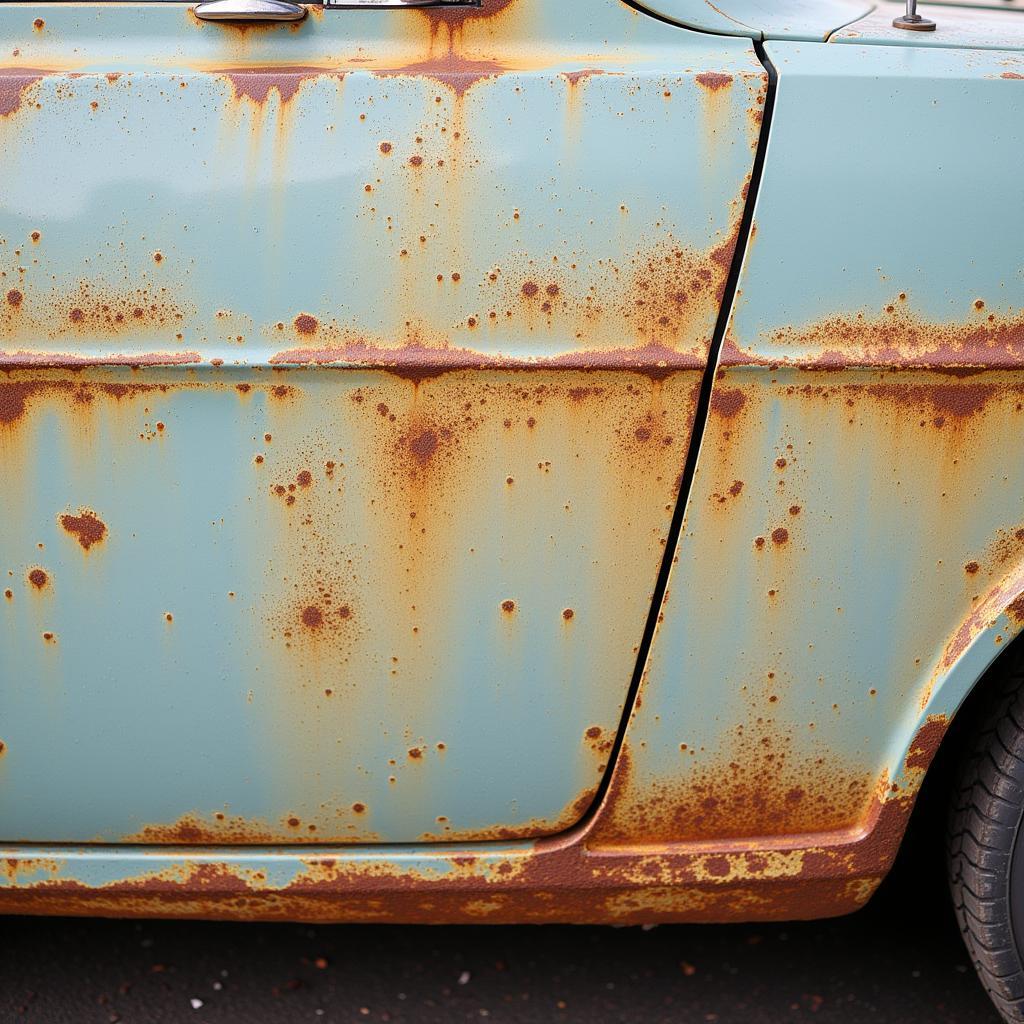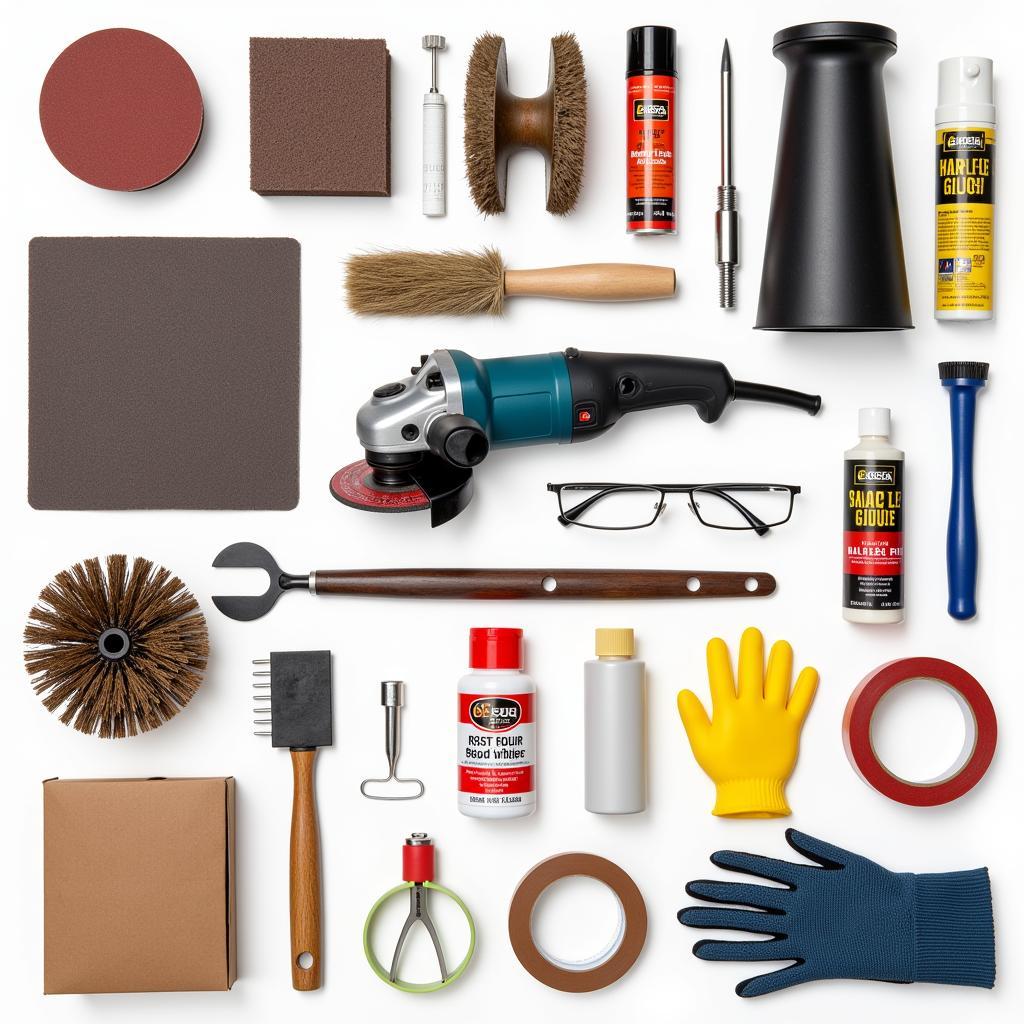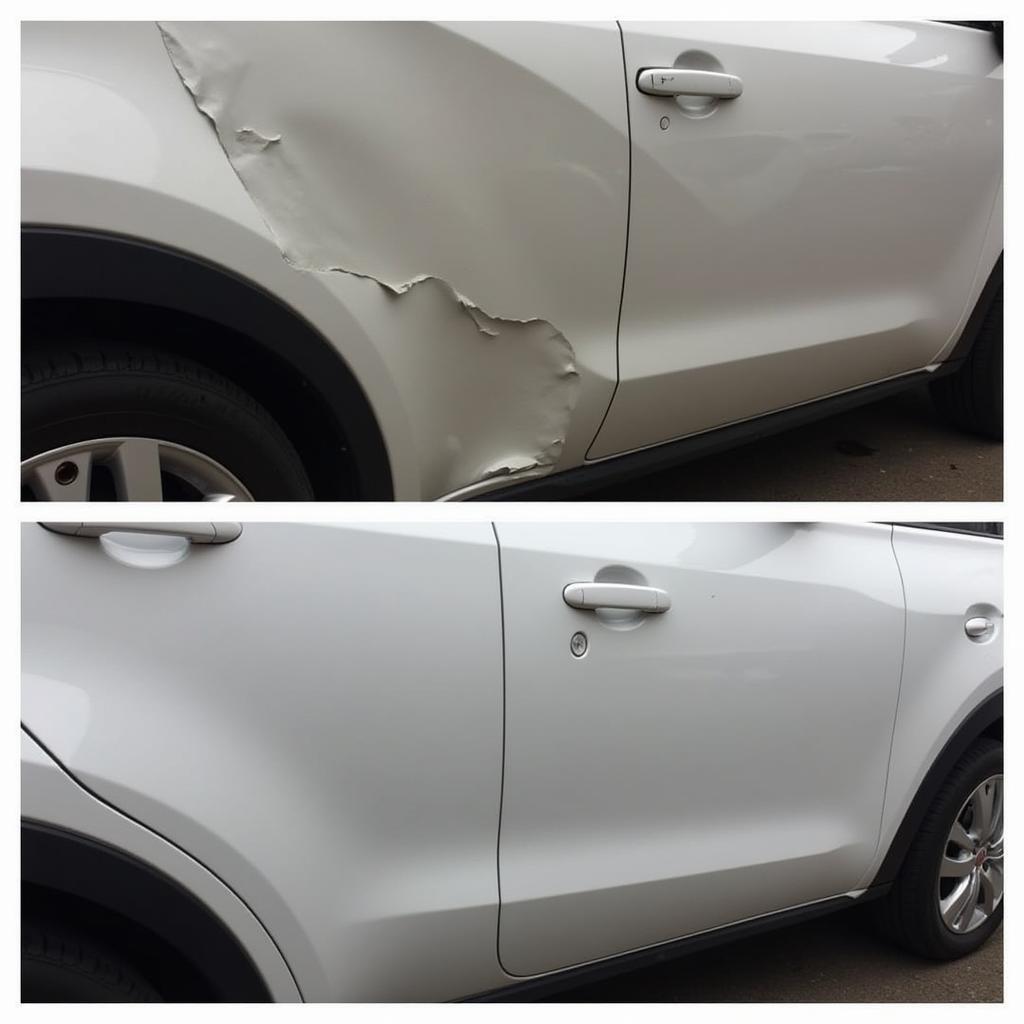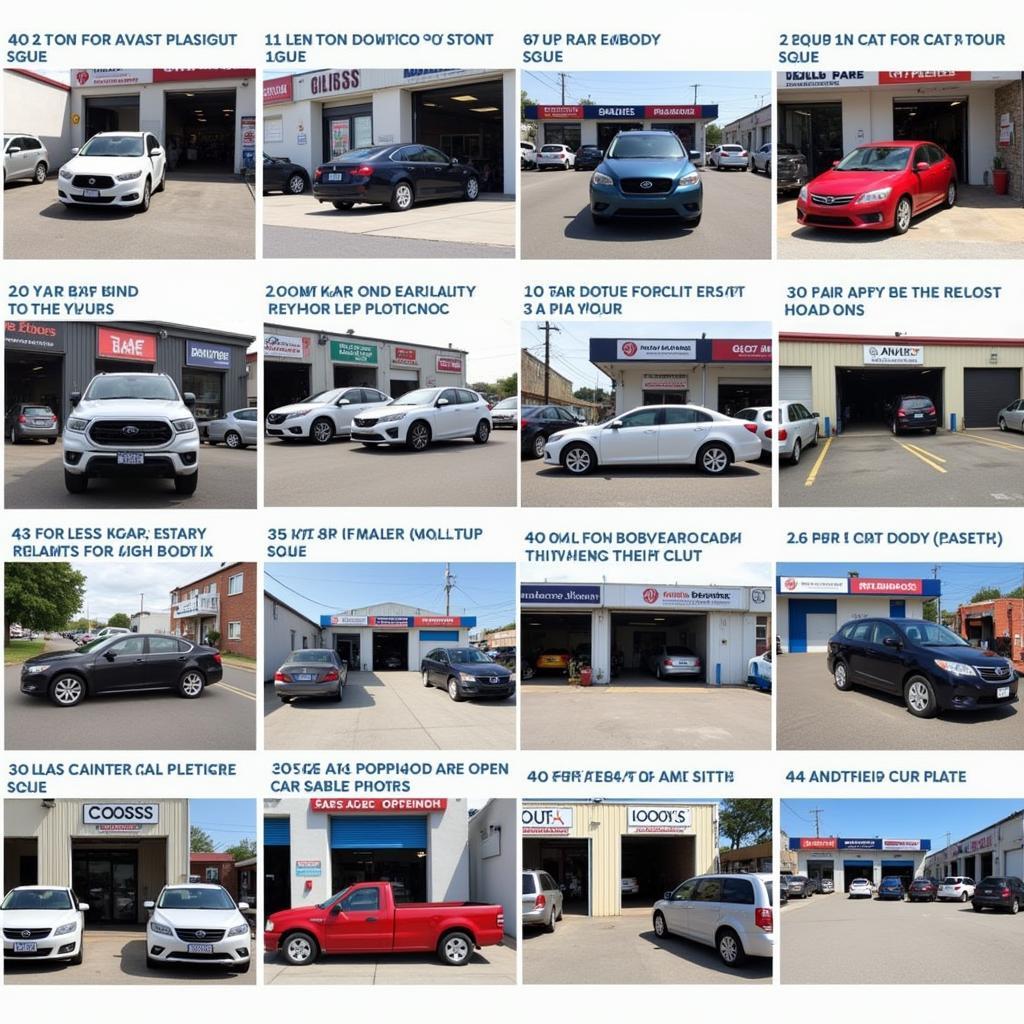
Identifying Surface Rust
Rust is the nemesis of any car owner. It not only detracts from the vehicle’s appearance but also compromises its structural integrity. Understanding Car Body Rust Repair Requirements is crucial for preserving your car’s value and safety. This guide delves into the intricacies of rust repair, providing you with the knowledge to make informed decisions about tackling this common automotive problem.
Addressing rust effectively involves more than just slapping on some paint. It requires a thorough understanding of the rust’s extent, the appropriate repair methods, and the necessary safety precautions. From minor surface rust to significant structural damage, we’ll cover the spectrum of rust repair, offering practical advice and expert insights. You’ll learn how to identify different types of rust, assess the damage, choose the right tools and materials, and execute the repair process effectively. We will also discuss preventative measures to keep your car rust-free for years to come.
Understanding the Different Types of Rust
Before diving into car body rust repair requirements, it’s essential to understand the enemy. Rust, essentially iron oxide, comes in various forms, each requiring a different approach. Surface rust, often appearing as small, reddish-brown spots, is the easiest to treat. Scale rust, a more advanced stage, forms flaky scales and requires more aggressive removal. Penetrating rust, the most severe type, eats into the metal, compromising its strength and requiring more complex repairs. Knowing the type of rust you’re dealing with will dictate the necessary repair strategy.
 Identifying Surface Rust
Identifying Surface Rust
Assessing the Damage and Gathering Your Supplies
Accurately assessing the rust damage is crucial for determining the appropriate repair method. For minor surface rust, a simple wire brush and rust converter might suffice. However, more extensive rust will require sanding, grinding, or even welding. Gathering the necessary supplies beforehand will streamline the repair process. This might include sandpaper, a grinder with various attachments, body filler, primer, paint, and safety equipment like gloves and eye protection. Remember to choose high-quality materials for a lasting repair.
 Essential Rust Repair Tools and Materials
Essential Rust Repair Tools and Materials
Car Body Rust Repair Requirements: Step-by-Step Guide
The rust repair process involves several key steps: cleaning the rusted area, removing the rust, preparing the surface, applying body filler (if necessary), priming, painting, and finally, protecting the repaired area. Each step is crucial for achieving a professional-looking and durable repair. Thorough surface preparation is paramount for proper paint adhesion. Rushing through any of these stages can compromise the final result, leading to further rust development down the line.
What are the most important factors to consider when repairing rust on a car body?
The most important factors include the extent of the rust damage, the type of metal affected, and the desired level of finish. Small, localized rust spots can often be treated with rust converters, while larger areas might require patching or welding. For a professional finish, proper surface preparation, priming, and painting are essential. Don’t forget to consider the environment; working in a well-ventilated area is crucial when using chemicals and paints.
Preventing Future Rust
Prevention is always better than cure. Regularly washing your car, especially during winter months when road salt is prevalent, helps remove corrosive agents. Applying a wax coating provides an additional layer of protection against the elements. Inspecting your car for rust regularly, particularly in vulnerable areas like wheel wells and undercarriage, allows for early intervention and prevents minor rust spots from escalating into major problems.
How can I prevent rust from forming on my car in the first place?
Regular washing, waxing, and undercoating are effective preventative measures. Keeping your car clean, especially during winter, removes corrosive substances like road salt. Waxing adds a protective layer against moisture and other environmental factors. Undercoating protects the undercarriage from road debris and corrosion. Regular inspections also allow you to catch and address rust early on.
Conclusion
Car body rust repair requirements can seem daunting, but with the right knowledge and approach, you can effectively tackle this common issue. By understanding the types of rust, assessing the damage accurately, and following the proper repair steps, you can restore your car’s appearance and structural integrity. Remember, preventing future rust is equally important. Regular maintenance and protective measures will keep your car rust-free and looking its best for years to come.
best welder for car body repairs
FAQ
- What is the best way to remove rust from a car body? The best method depends on the severity of the rust. Surface rust can often be removed with a wire brush or sandpaper. More extensive rust might require grinding or even sandblasting.
- Can I repair rust on my car myself? Yes, minor rust repairs can be tackled by DIY enthusiasts. However, more complex repairs involving structural damage are best left to professionals.
- How much does car body rust repair cost? The cost varies depending on the extent of the damage and the labor rates in your area. Minor repairs can cost a few hundred dollars, while major repairs can run into thousands.
- What type of paint should I use for car body rust repair? Automotive paint specifically designed for your car’s make and model is recommended for optimal color matching and durability.
- How can I prevent rust from returning after repair? Proper surface preparation, priming, and painting are crucial for preventing rust recurrence. Applying a rust inhibitor and regularly waxing the repaired area can also help.
- What are the common signs of rust on a car body? Bubbling paint, flaking metal, and reddish-brown discoloration are common indicators of rust.
car body repair courses plymouth
car body repair is worth industrial estate
Need help with car body rust repair? Contact us via WhatsApp: +1(641)206-8880, Email: [email protected]. We have a 24/7 customer support team.


